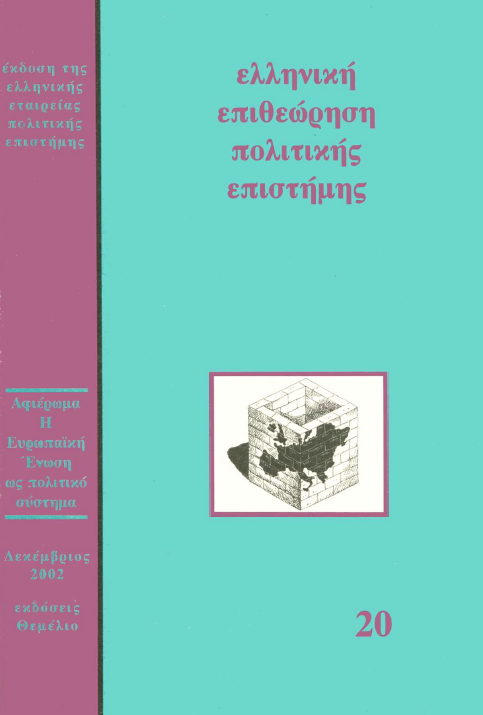The "Europeanization" of public policy: the Greek environmental policy between supranational commitments and domestic forces
Abstract
The purpose of this paper is to examine the tensions arising in the intersections between commitments of the Greek government at the EU-level and domestic factors working in the implementation phase. It is argued that Greece belongs to the "laggard” countries on issues of environmental protection. Since the environmental policy of the Eli is driven by the leaders in this policy area, a gap arises between the standards reflected in EU-regulations and the "national preferences" as they are defined through the domestic political process. The unavoidable friction is more pronounced at the implementation phase in the national context, where developmental imperatives as they are perceived by politicians and citizens, frail ethics against common properties and clientelistic traditions combine to counter environmental policy innovation. The Greek experience in the environmental sector indicates that European integration has not weakened the ability of the nation-state to pursue national preferences, however these may be assessed.
Article Details
- How to Cite
-
Καζάκος Π. (2017). The "Europeanization" of public policy: the Greek environmental policy between supranational commitments and domestic forces. Greek Political Science Review, 13, 83–122. https://doi.org/10.12681/hpsa.15139
- Issue
- Vol. 13 (1999)
- Section
- Articles

This work is licensed under a Creative Commons Attribution-NonCommercial-ShareAlike 4.0 International License.
Authors who publish with this journal agree to the following terms:
Authors retain copyright and grant the journal right of first publication with the work simultaneously licensed under a Creative Commons Attribution licence that allows others to share the work with an acknowledgement of the work's authorship and initial publication in this journal.
Authors are able to enter into separate, additional contractual arrangements for the non-exclusive distribution of the journal's published version of the work (e.g. post it to an institutional repository or publish it in a book), with an acknowledgement of its initial publication in this journal.
Authors are permitted and encouraged to post their work online (preferably in institutional repositories or on their website) prior to and during the submission process, as it can lead to productive exchanges, as well as earlier and greater citation of published work (See The Effect of Open Access).









